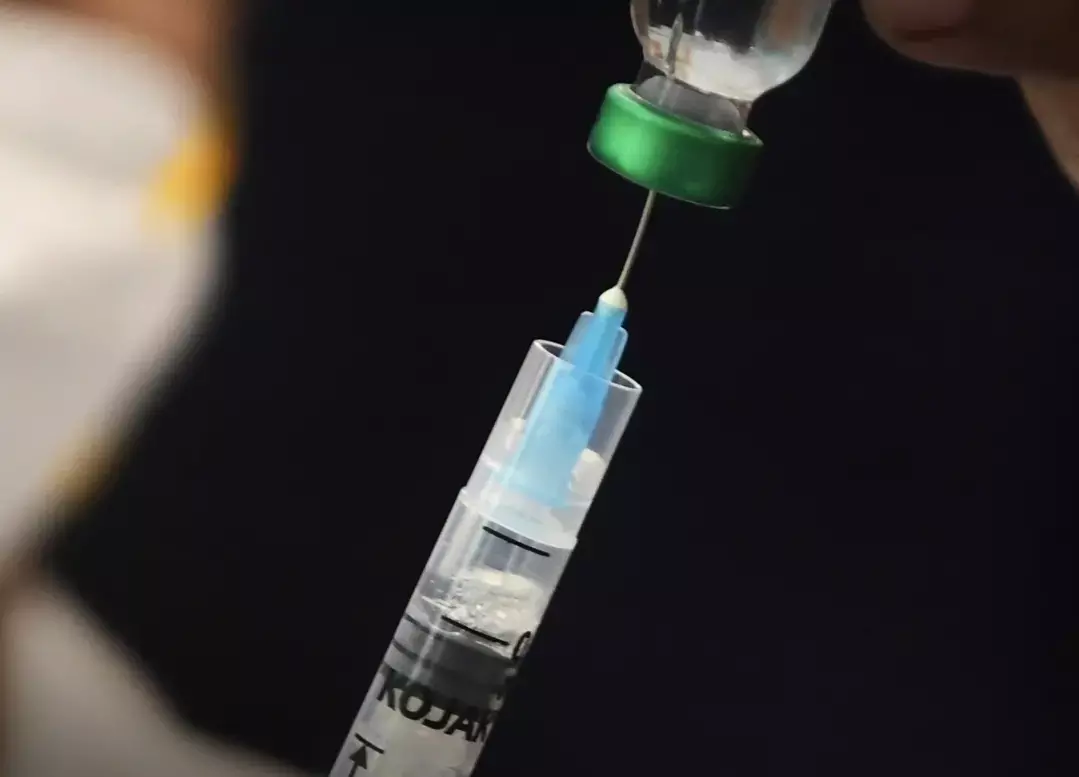- Home
- Medical news & Guidelines
- Anesthesiology
- Cardiology and CTVS
- Critical Care
- Dentistry
- Dermatology
- Diabetes and Endocrinology
- ENT
- Gastroenterology
- Medicine
- Nephrology
- Neurology
- Obstretics-Gynaecology
- Oncology
- Ophthalmology
- Orthopaedics
- Pediatrics-Neonatology
- Psychiatry
- Pulmonology
- Radiology
- Surgery
- Urology
- Laboratory Medicine
- Diet
- Nursing
- Paramedical
- Physiotherapy
- Health news
- Fact Check
- Bone Health Fact Check
- Brain Health Fact Check
- Cancer Related Fact Check
- Child Care Fact Check
- Dental and oral health fact check
- Diabetes and metabolic health fact check
- Diet and Nutrition Fact Check
- Eye and ENT Care Fact Check
- Fitness fact check
- Gut health fact check
- Heart health fact check
- Kidney health fact check
- Medical education fact check
- Men's health fact check
- Respiratory fact check
- Skin and hair care fact check
- Vaccine and Immunization fact check
- Women's health fact check
- AYUSH
- State News
- Andaman and Nicobar Islands
- Andhra Pradesh
- Arunachal Pradesh
- Assam
- Bihar
- Chandigarh
- Chattisgarh
- Dadra and Nagar Haveli
- Daman and Diu
- Delhi
- Goa
- Gujarat
- Haryana
- Himachal Pradesh
- Jammu & Kashmir
- Jharkhand
- Karnataka
- Kerala
- Ladakh
- Lakshadweep
- Madhya Pradesh
- Maharashtra
- Manipur
- Meghalaya
- Mizoram
- Nagaland
- Odisha
- Puducherry
- Punjab
- Rajasthan
- Sikkim
- Tamil Nadu
- Telangana
- Tripura
- Uttar Pradesh
- Uttrakhand
- West Bengal
- Medical Education
- Industry
COVID-19 Vaccination prevents development of long Covid: BMJ

A recent study published in the British Medical Journal explored the impact of primary COVID-19 vaccination on post-COVID-19 conditions (PCC). The study spanned from December 2020 to February 2022 as part of the Swedish Covid-19 Investigation for Future Insights. This involved 589,722 adults in Sweden, sheds light on the effectiveness of the initial two doses and the first booster shot within the recommended schedule.
Out of the 299,692 vaccinated individuals who were infected with COVID-19 during the study, only 0.4% received a diagnosis of PCC during follow-up. This contrasts with the 1.4% of the 290,030 unvaccinated individuals who developed post-COVID conditions. The vaccination strategy, irrespective of the number of doses, demonstrated a substantial reduction in the risk of PCC, with a calculated vaccine effectiveness of 58%.
The breakdown of vaccine effectiveness by dosage found that individuals who received one dose showed 21% effectiveness against PCC, while those with two doses demonstrated a robust 59% reduction in risk. Individuals who received three or more doses experienced an even more significant reduction, with a vaccine effectiveness of 73%.
The study adjusted for various factors, including age, sex, comorbidities, healthcare contacts, socioeconomic factors, and the dominant virus variant at the time of infection. These results underscore the crucial role of primary COVID-19 vaccination in mitigating the population burden of post-COVID conditions.
Despite the positive findings, the study emphasizes the need for ongoing caution and adherence to evidence-based, standard-of-care treatments. While the association between COVID-19 vaccination and reduced PCC risk is strong, researchers call for continued research, especially large-scale clinical trials, to further solidify these conclusions and address any remaining uncertainties.
Reference:
Lundberg-Morris, L., Leach, S., Xu, Y., Martikainen, J., Santosa, A., Gisslén, M., Li, H., Nyberg, F., & Bygdell, M. (2023). Covid-19 vaccine effectiveness against post-covid-19 condition among 589 722 individuals in Sweden: population based cohort study. In BMJ (p. e076990). BMJ. https://doi.org/10.1136/bmj-2023-076990
Neuroscience Masters graduate
Jacinthlyn Sylvia, a Neuroscience Master's graduate from Chennai has worked extensively in deciphering the neurobiology of cognition and motor control in aging. She also has spread-out exposure to Neurosurgery from her Bachelor’s. She is currently involved in active Neuro-Oncology research. She is an upcoming neuroscientist with a fiery passion for writing. Her news cover at Medical Dialogues feature recent discoveries and updates from the healthcare and biomedical research fields. She can be reached at editorial@medicaldialogues.in


